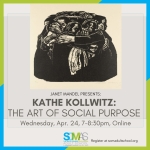Democratic Party has Seth Rich killed because he leaked to Wikileaks and the authorities are deep sixing any investigation
Really? You are fine with the DNC rigging elections? You don't mind Debbie Wasserman Schultz picking your candidate--and ending up with an orange psycho? I contributed to Bernie Sander's campaign and I'm outraged that my money was spent on a candidate that was not treated fairly by the DNC.
drummerboy said:
I can't think of a greater waste of liberal time and energy than this lawsuit.
nan said:
I don't know anything about the Seth Rich conspiracy theory. I am trying to follow the DNC lawsuit related to fraud during the primary. This is going forward, but not getting media coverage. Here's an update (might have to skip through a lot of "conversation" for the first half - there is another video following with some more info). They are saying that the DNC scammed people who donated to Bernie Sanders since it was not a fair race (as evidenced by Wikileaks).
dave23 said:
paulsurovell said:
With regard to the Lavrov meeting I think one can choose between participants on the record and anonymous sources whose connection to the meeting is unknown.
With the administration barring American journalists--while including Russian state-run media--we've entered a new paradigm. And this administration is so dismissive of media that journalists have little choice but to rely almost exclusively on anonymous sources.
You expected American journalists to sit in so they could report what was said at the meeting?
paulsurovell said:
dave23 said:
paulsurovell said:
With regard to the Lavrov meeting I think one can choose between participants on the record and anonymous sources whose connection to the meeting is unknown.
With the administration barring American journalists--while including Russian state-run media--we've entered a new paradigm. And this administration is so dismissive of media that journalists have little choice but to rely almost exclusively on anonymous sources.
You expected American journalists to sit in so they could report what was said at the meeting?
Not necessarily, just illustrating how this administration functions. When sources won't go on the record, sometimes you have to go off the record.
"There's two people I think Putin pays: (California GOP Rep. Dana) Rohrbacher and Trump." -- Republican House Majority Leader Kevin McCarthy Leader on tape at a June, 2016 meeting.
https://www.washingtonpost.com...
When asked if McCarthy had said this, both Ryan's office and McCarthy's vehemently denied it. After being told that the Washington Post had a tape, they said it was a joke.
nan said:
Really? You are fine with the DNC rigging elections? You don't mind Debbie Wasserman Schultz picking your candidate--and ending up with an orange psycho?
I do not think that that is what "rigging" means. And t wasn't an "election" it was a Nomination Contest. The Chair of the DNC put her finger on he scale to favor the long-time Democratic Party stalwart Hillary Clinton against a candidate who was not a member of the Party but rather an Independent. It was not legal according to the Rules of the Party, but I wish the Republican National Committee had done something to prevent the hostile takeover of their Party by an outsider who, in your words, is an orange psycho.
It was rigged--they deliberately tried to sabotage one of the candidates and favored the other. They lied and pretended it was a fair race. It was not just a nominating process--it involved actual votes. It caused us to end up with the orange psychopath. We should not support this type behavior. I am glad they are investigating and it will be interesting what comes out at the trial.
LOST said:
nan said:
Really? You are fine with the DNC rigging elections? You don't mind Debbie Wasserman Schultz picking your candidate--and ending up with an orange psycho?
I do not think that that is what "rigging" means. And t wasn't an "election" it was a Nomination Contest. The Chair of the DNC put her finger on he scale to favor the long-time Democratic Party stalwart Hillary Clinton against a candidate who was not a member of the Party but rather an Independent. It was not legal according to the Rules of the Party, but I wish the Republican National Committee had done something to prevent the hostile takeover of their Party by an outsider who, in your words, is an orange psycho.
can we change the title of this thread to "I fell hard for an unsubstantiated ultra Right conspiracy theory,that even Fox News is backtracking on. Kick me"
I think it's actually a bit trickier than commonly acknowledged to distinguish "critical media consumer" from "conspiracy theorist," as they do share some surface similarities. I won't be coy here and will come right out and say I find Paul's post past the line and into conspiracy territory, but it's worth asking what makes them so. After all, a criticism of anonymous sourcing, and a disinclination to take the words of government officials at face value, is actually something to be commended.
I think the distinction lies in how the skepticism is applied. Is skepticism applied to all news, or only to news which contradicts what one has already decided to believe? A critical news consumer endeavors to be critical of all news -- official or not, agreeing with one's current POV or not. A conspiracy theorist, on the other hand, is very selective with their skepticism. They raise (often valid!) points as to the limitations and possible inaccuracies of "official" news stories, but are at best reticent in applying an equally skeptical eye toward news and sources that support their own opinions. It's a super-charged form of confirmation bias, and from the outside it is notable in its extreme double standards, giving a pass to often seems like self-evidently shoddy evidence or reasoning in one case while focusing in on what are, in comparison, smaller issues in a story that goes against what they believe.
I'm picking on Paul a bit here, but I do want to acknowledge that we all can fall prey to this. We all want to believe what we believe, and before we pat ourselves too hard on the back from being able to distinguish a Washington Post article from right-wing conspiracy rantings, it's worth being a bit introspective and thinking about the criteria we're using to reach that conclusion.
For the record, I do find the WaPo reporting here very convincing, but I think it's always a worthwhile exercise to ask, if the reporting were supportive rather than critical of Trump, would I be as likely to believe it? Why not?
^^^ Wisdom there.
PVW said:
I'm picking on Paul a bit here, but I do want to acknowledge that we all can fall prey to this. We all want to believe what we believe, and before we pat ourselves too hard on the back from being able to distinguish a Washington Post article from right-wing conspiracy rantings, it's worth being a bit introspective and thinking about the criteria we're using to reach that conclusion.
For the record, I do find the WaPo reporting here very convincing, but I think it's always a worthwhile exercise to ask, if the reporting were supportive rather than critical of Trump, would I be as likely to believe it? Why not?
As someone who has been embedded in midsize and large newspapers for 30-plus years, I'm sure I have my blind spots, but the idea that coverage (a.k.a. snow jobs) is shaped to follow predetermined narratives or favoritism for one candidate over another runs completely counter to my experience. And while there's no denying the high-profile -- and many lesser -- mistakes, I think that in some way they attest to an industry openness to criticism, even when there's deep initial disagreement, that should encourage good faith.
PVW said:
I think it's actually a bit trickier than commonly acknowledged to distinguish "critical media consumer" from "conspiracy theorist," as they do share some surface similarities. I won't be coy here and will come right out and say I find Paul's post past the line and into conspiracy territory, but it's worth asking what makes them so. After all, a criticism of anonymous sourcing, and a disinclination to take the words of government officials at face value, is actually something to be commended.
I think the distinction lies in how the skepticism is applied. Is skepticism applied to all news, or only to news which contradicts what one has already decided to believe? A critical news consumer endeavors to be critical of all news -- official or not, agreeing with one's current POV or not. A conspiracy theorist, on the other hand, is very selective with their skepticism. They raise (often valid!) points as to the limitations and possible inaccuracies of "official" news stories, but are at best reticent in applying an equally skeptical eye toward news and sources that support their own opinions. It's a super-charged form of confirmation bias, and from the outside it is notable in its extreme double standards, giving a pass to often seems like self-evidently shoddy evidence or reasoning in one case while focusing in on what are, in comparison, smaller issues in a story that goes against what they believe.
I'm picking on Paul a bit here, but I do want to acknowledge that we all can fall prey to this. We all want to believe what we believe, and before we pat ourselves too hard on the back from being able to distinguish a Washington Post article from right-wing conspiracy rantings, it's worth being a bit introspective and thinking about the criteria we're using to reach that conclusion.
For the record, I do find the WaPo reporting here very convincing, but I think it's always a worthwhile exercise to ask, if the reporting were supportive rather than critical of Trump, would I be as likely to believe it? Why not?
You raise some good points here, and I can't do them justice just now, but I'd like to follow-up your concept of "a critical media consumer" to observe that there is a counter-narrative of the Russia story in sources such as Consortium News, the Intercept and FAIR (Fairness and Accuracy in Media). But as I've been pointing out for months, these sources are banned from the pages of WaPo and the NY Times or from the airwaves of MSNBC and CNN. Why do you think that is the case?
DaveSchmidt said:
^^^ Wisdom there.
PVW said:
I'm picking on Paul a bit here, but I do want to acknowledge that we all can fall prey to this. We all want to believe what we believe, and before we pat ourselves too hard on the back from being able to distinguish a Washington Post article from right-wing conspiracy rantings, it's worth being a bit introspective and thinking about the criteria we're using to reach that conclusion.
For the record, I do find the WaPo reporting here very convincing, but I think it's always a worthwhile exercise to ask, if the reporting were supportive rather than critical of Trump, would I be as likely to believe it? Why not?
As someone who has been embedded in midsize and large newspapers for 30-plus years, I'm sure I have my blind spots, but the idea that coverage (a.k.a. snow jobs) is shaped to follow predetermined narratives or favoritism for one candidate over another runs completely counter to my experience. And while there's no denying the high-profile -- and many lesser -- mistakes, I think that in some way they attest to an industry openness to criticism, even when there's deep initial disagreement, that should encourage good faith.
I don't doubt that journalists are acting in good faith, it's just that there's a tacit understanding of what management wants and to go against that could mean risking one's career.
Former NY Times reporter Chris Hedges:
Remember, as journalists, our job is to manipulate facts. I did it for many years. I
can take any set of facts and spin you a story anyway you want. And if
I'm very cynical, I can spin it in a way that I know is good for my
career but is not particularly truthful to my reader. And I always
attempted to convey to my reader the truth.But reporters
who keep hammering home the truth often become management problems and
they don't rise within the organization. You know within the institution
what will advance you and what will not, and, you know, you don't need a
list of rules written on a wall so that the hierarchy of an institution
like The New York Times is dominated by people who are
careerists, whose loyalty is to their own advancement rather than to the
truth. And yet all great journalistic institutions need those reporters
who care about truth--David Cay Johnston, you know, Sydney Schanberg,
who I mentioned before. I mean, they were there. What happens is that
they often eventually have a confrontation with that institution. And
because they have that kind of integrity, they're often cast--usually
cast aside by the institution.
paulsurovell said:
I don't doubt that journalists are acting in good faith ...
Now that, based on at least some of your criticism, is a snow job. 
There are a couple of (not mutually exclusive) possibilities: that not being a reporter, I am insulated from the kinds of careerism and editorial pressures that Hedges discusses, creating one of my blind spots, and that reporters can become so convinced they possess the truth that they perceive prudent attempts to question their stories as intolerable obstruction. Sometimes the truth is indeed on their side, and sometimes the obstruction is indeed intolerable. They aren't always, which is why the prudent attempts endure.
paulsurovell said:
PVW said:
For the record, I do find the WaPo reporting here very convincing, but I think it's always a worthwhile exercise to ask, if the reporting were supportive rather than critical of Trump, would I be as likely to believe it? Why not?
You raise some good points here, and I can't do them justice just now, but I'd like to follow-up your concept of "a critical media consumer" to observe that there is a counter-narrative of the Russia story in sources such as Consortium News, the Intercept and FAIR (Fairness and Accuracy in Media). But as I've been pointing out for months, these sources are banned from the pages of WaPo and the NY Times or from the airwaves of MSNBC and CNN. Why do you think that is the case?
In most cases because they have a long history of not only relying almost exclusively on unverifiable sources, but they have an extremely poor track record when it comes to any of their theories panning out.
Well said.
PVW said:
I think it's actually a bit trickier than commonly acknowledged to distinguish "critical media consumer" from "conspiracy theorist," as they do share some surface similarities. I won't be coy here and will come right out and say I find Paul's post past the line and into conspiracy territory, but it's worth asking what makes them so. After all, a criticism of anonymous sourcing, and a disinclination to take the words of government officials at face value, is actually something to be commended.
I think the distinction lies in how the skepticism is applied. Is skepticism applied to all news, or only to news which contradicts what one has already decided to believe? A critical news consumer endeavors to be critical of all news -- official or not, agreeing with one's current POV or not. A conspiracy theorist, on the other hand, is very selective with their skepticism. They raise (often valid!) points as to the limitations and possible inaccuracies of "official" news stories, but are at best reticent in applying an equally skeptical eye toward news and sources that support their own opinions. It's a super-charged form of confirmation bias, and from the outside it is notable in its extreme double standards, giving a pass to often seems like self-evidently shoddy evidence or reasoning in one case while focusing in on what are, in comparison, smaller issues in a story that goes against what they believe.
I'm picking on Paul a bit here, but I do want to acknowledge that we all can fall prey to this. We all want to believe what we believe, and before we pat ourselves too hard on the back from being able to distinguish a Washington Post article from right-wing conspiracy rantings, it's worth being a bit introspective and thinking about the criteria we're using to reach that conclusion.
For the record, I do find the WaPo reporting here very convincing, but I think it's always a worthwhile exercise to ask, if the reporting were supportive rather than critical of Trump, would I be as likely to believe it? Why not?
max_weisenfeld said:
paulsurovell said:
PVW said:
For the record, I do find the WaPo reporting here very convincing, but I think it's always a worthwhile exercise to ask, if the reporting were supportive rather than critical of Trump, would I be as likely to believe it? Why not?
You raise some good points here, and I can't do them justice just now, but I'd like to follow-up your concept of "a critical media consumer" to observe that there is a counter-narrative of the Russia story in sources such as Consortium News, the Intercept and FAIR (Fairness and Accuracy in Media). But as I've been pointing out for months, these sources are banned from the pages of WaPo and the NY Times or from the airwaves of MSNBC and CNN. Why do you think that is the case?
In most cases because they have a long history of not only relying almost exclusively on unverifiable sources, but they have an extremely poor track record when it comes to any of their theories panning out.
Do you have any examples of this in mind?
DaveSchmidt said:
paulsurovell said:Now that, based on at least some of your criticism, is a snow job.
I don't doubt that journalists are acting in good faith ...
There are a couple of (not mutually exclusive) possibilities: that not being a reporter, I am insulated from the kinds of careerism and editorial pressures that Hedges discusses, creating one of my blind spots, and that reporters can become so convinced they possess the truth that they perceive prudent attempts to question their stories as intolerable obstruction. Sometimes the truth is indeed on their side, and sometimes the obstruction is indeed intolerable. They aren't always, which is why the prudent attempts endure.
On whether there is a "narrative" and "an agenda" at the NY Times, another former NY Times writer, Michael Cleply:
https://deadline.com/2016/11/s...
For starters, it’s important to accept that the New York Times has always — or at least for many decades — been a far more editor-driven, and self-conscious, publication than many of those with which it competes. Historically, the Los Angeles Times, where I worked twice, for instance, was a reporter-driven, bottom-up newspaper. Most editors wanted to know, every day, before the first morning meeting: “What are you hearing? What have you got?”
It was a shock on arriving at the New York Times in 2004, as the paper’s movie editor, to realize that its editorial dynamic was essentially the reverse. By and large, talented reporters scrambled to match stories with what internally was often called “the narrative.” We were occasionally asked to map a narrative for our various beats a year in advance, square the plan with editors, then generate stories that fit the pre-designated line.
Reality usually had a way of intervening. But I knew one senior reporter who would play solitaire on his computer in the mornings, waiting for his editors to come through with marching orders. Once, in the Los Angeles bureau, I listened to a visiting National staff reporter tell a contact, more or less: “My editor needs someone to say such-and-such, could you say that?”
The bigger shock came on being told, at least twice, by Times editors who were describing the paper’s daily Page One meeting: “We set the agenda for the country in that room.”
[ . . . ]
Inside the Times building, then and now, a great deal of the conversation is about the Times. In any institution, shop-talk is inevitable. But the navel-gazing seemed more intense at the Times, where too many journalists spent too much time decoding the paper’s ways, and too little figuring out the world at large. I listened to one longtime editor explain over lunch, for instance, that everybody on the paper has an invisible rank that might or might not coincide with his or her apparent place in the hierarchy. “You might think I’m a captain,” he said, based on his position at the time in a slightly backwater department. But, he continued, “I’m actually a colonel, because of my experiences and influence here.”
one thing I agree with Paul on is to have a level of skepticism on the Trump/Russia stories. MSNBC is particularly frustrating to watch, where it's all Russia all the time. There are probably incentives in the media to hype the drama and intrigue of a Trump-Russia conspiracy. There are almost certainly incentives for people in government to revive the Cold War, in order to inflate their own importance and influence, and to justify their budgets. But we need to remember a couple of things -- Russia and the U.S. are not at war. Both countries are pursuing their own self-interest, and sometimes those interests align, and sometimes they are in opposition.
But I can't believe for a minute that Trump and Russian agents colluded to hack the DNC or conspired to spread fake news on social media. Mostly because until November 8, I don't believe Trump really thought he'd win the election. So why go through the trouble to engage in an elaborate conspiracy that might not even pay off. It's really an indirect way to influence an election -- go to a foreign country and ask them to sow uncertainty. Uncertainty isn't necessarily going to work, precisely because it's uncertain.
I do think that Trump's tenacious opposition to an investigation suggests he's hiding something regarding Russia. But it's more likely business dealings with shady characters and potential money laundering than it is treasonous activity to undermine an election. It's why he keeps saying there was no collusion with Russia. It's a very specific denial. Not to mention that his son has already talked about the money they get from Russian sources, and that his spokesperson said Trump has had no dealings with Russia "with a few exceptions."
Anyway, I think it's time to just let the investigations proceed, and stop believing elaborate conspiracy theories about hacking and collusion with the Trump campaign without seeing any good evidence.
Trump reassured the Russians that he wasn't under investigation, calling Comey a "not job." Strangely, the White House has not denied it.
ml1 said:
one thing I agree with Paul on is to have a level of skepticism on the Trump/Russia stories. MSNBC is particularly frustrating to watch, where it's all Russia all the time. There are probably incentives in the media to hype the drama and intrigue of a Trump-Russia conspiracy. There are almost certainly incentives for people in government to revive the Cold War, in order to inflate their own importance and influence, and to justify their budgets. But we need to remember a couple of things -- Russia and the U.S. are not at war. Both countries are pursuing their own self-interest, and sometimes those interests align, and sometimes they are in opposition.
But I can't believe for a minute that Trump and Russian agents colluded to hack the DNC or conspired to spread fake news on social media. Mostly because until November 8, I don't believe Trump really thought he'd win the election. So why go through the trouble to engage in an elaborate conspiracy that might not even pay off. It's really an indirect way to influence an election -- go to a foreign country and ask them to sow uncertainty. Uncertainty isn't necessarily going to work, precisely because it's uncertain.
I do think that Trump's tenacious opposition to an investigation suggests he's hiding something regarding Russia. But it's more likely business dealings with shady characters and potential money laundering than it is treasonous activity to undermine an election. It's why he keeps saying there was no collusion with Russia. It's a very specific denial. Not to mention that his son has already talked about the money they get from Russian sources, and that his spokesperson said Trump has had no dealings with Russia "with a few exceptions."
Anyway, I think it's time to just let the investigations proceed, and stop believing elaborate conspiracy theories about hacking and collusion with the Trump campaign without seeing any good evidence.
Ironic that the skeptics of the Russian-collusion conspiracy are called "conspiracists" by the believers.
dave23 said:
Trump reassured the Russians that he wasn't under investigation, calling Comey a "not job." Strangely, the White House has not denied it.
https://nyti.ms/2rA7YSD
That's even more treasonous than calling him a "nut job." Meanwhile, Rosenstein has doubled down on his memo, going from hero to villain again.
I think the most likely scenario is that Trump and/or his advisers spoke with Russian officials about rolling back the sanctions prior to Trump's inauguration.
paulsurovell said:
dave23 said:
Trump reassured the Russians that he wasn't under investigation, calling Comey a "not job." Strangely, the White House has not denied it.
https://nyti.ms/2rA7YSD
That's even more treasonous than calling him a "nut job." Meanwhile, Rosenstein has doubled down on his memo, going from hero to villain again.
I do not understand. What is more treasonous?
Lol.
dave23 said:
Was Watergate sourced anonymously or did someone get the unfortunate name of Deep Throat at birth? I forget.
Such a person would have had a great law suit against the producers of the film by the same name.
Clicking the OP's original link, which the supposedly mainstream media ignored because it was the Democrats who were the perpetrators, gets you this:
Something has gone wrong...
I can only admire the OP's effort, though: a sign-on created four years ago for this one and only post.
Excellent article in the Washington Post written by Seth Rich's parents on the shameless conspiracy theories spread by such as the OP of this thread and the hurt that it has caused them.
https://www.washingtonpost.com...
Imagine living in a nightmare that you can never wake up from. Imagine having to face every single day knowing that your son was murdered. Imagine you had no answers — that no one has been brought to justice and there were few clues leading to the killer or killers. Imagine that every single day, with every phone call you hope that it’s the police, calling to tell you that there has been a break in the case.
Imagine that instead, every call that comes in is a reporter asking what you think of a series of lies or conspiracies about the death. That nightmare is what our family goes through every day.
...
We know that Seth was abruptly confronted on the street, that he had
been on the phone and quickly ended the call. We also know that there
were signs of a struggle, including a watchband torn when the assailants
attempted to rip it off his wrist. Law-enforcement officials told us
that Seth’s murder looked like a botched robbery attempt in which the
assailants — after shooting our son — panicked, immediately ran and
abandoned Seth’s personal belongings. We have seen no evidence, by any
person at any time, that Seth’s murder had any connection to his job at
the Democratic National Committee or his life in politics. Anyone who
claims to have such evidence is either concealing it from us or lying.
Still, conservative news outlets and commentators continue, day after painful day, to peddle discredited conspiracy theories that Seth was killed after having provided WikiLeaks with emails from the DNC. Those theories, which some reporters have since retracted, are baseless, and they are unspeakably cruel.
dave23 said:
Was Watergate sourced anonymously or did someone get the unfortunate name of Deep Throat at birth? I forget.
lolol. Anonymous sources are an integral and legitimate part of good journalism—especially in politics and government or any scandal. People who don't know anything about journalism are the only ones who think anonymous sourcing means the story is fake.




































"No criminal! No criminal! You're the criminal!"
Down the rabbit hole and through the looking glass, Fox & Friends opened Wednesday’s show with a bracingly novel theory: Former FBI Director James Comey could well be criminally liable for keeping notes on—but not immediately reporting—President Trump’s alleged request to quash the Mike Flynn investigation.